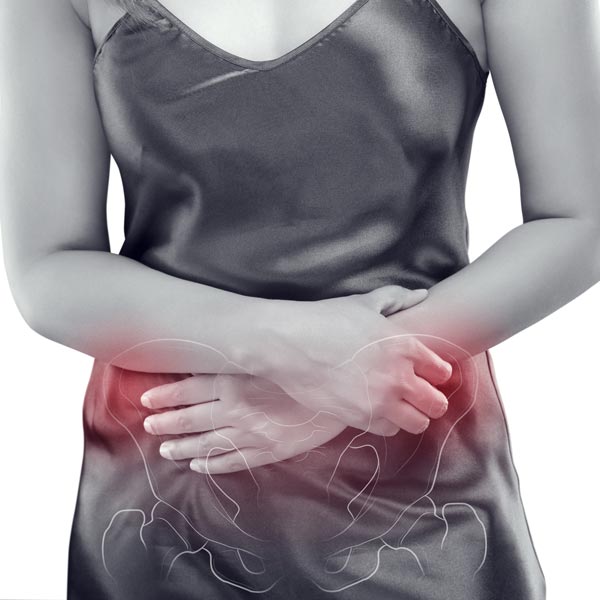13 Causes of Pain During Sex (Dyspareunia) and When To Seek Medical Treatment

Pain during sexual intercourse, a significant yet often unspoken issue, affects many women worldwide. Recent studies suggest that up to 20% of women experience discomfort or pain during sex, a condition known as dyspareunia. Despite its prevalence, this subject is frequently shrouded in silence, leaving many women feeling isolated and without answers. Here are 13 causes of pain during sex and information on when to seek treatment.
What Causes Pain During Sex?
Understanding the root causes of pain during sex or dyspareunia is essential for finding practical solutions. If you’re experiencing pain during sex, talk to your medical provider.
Here, we explore 13 common factors contributing to discomfort during intercourse:
Vaginal Dryness: This widespread issue, affecting women of all ages, can stem from hormonal fluctuations, stress, certain medications, or natural aging processes. Vaginal dryness can lead to dyspareunia or discomfort or pain during intercourse, but it is often manageable with over-the-counter lubricants or hormone therapy.
Vaginal Tearing: Micro-tears in the vaginal tissue can occur due to rough intercourse, inadequate lubrication, or a lack of arousal. Postmenopausal women are particularly prone to this due to thinner vaginal walls, a condition termed vaginal atrophy. These tears can cause significant discomfort during and after sex.
Vaginismus: This involuntary contraction of vaginal muscles is a complex condition often rooted in psychological factors such as anxiety, past trauma, or negative sexual experiences. Vaginismus can make penetration painful or impossible, impacting a woman’s sexual health and relationships.
Endometriosis: Affecting an estimated 1 in 10 women during their reproductive years, endometriosis is a painful condition where tissue resembling the lining of the uterus grows outside the uterine cavity. It can cause severe pain during menstruation and dyspareunia and is often associated with fertility issues.
Ovarian Cysts: Ovarian cysts are fluid-filled sacs that develop on the ovaries. While many are asymptomatic and resolve on their own, some can grow large, causing pelvic pain and discomfort during sex. Monitoring and medical intervention may be necessary in some cases. If untreated, ovarian cysts can rupture or cause ovarian torsion.
Pelvic Inflammatory Disease (PID): This infection of the female reproductive organs, often resulting from sexually transmitted infections, can lead to chronic pelvic pain and discomfort during intercourse. Early treatment is crucial to prevent long-term complications.
Interstitial Cystitis: Also known as painful bladder syndrome, this chronic condition causes bladder pressure and pain, often exacerbated during sexual activities, leading to dyspareunia. Its symptoms can mimic those of a urinary tract infection but without infection.
Pelvic Floor Dysfunction: The pelvic floor muscles support the pelvic organs, and dysfunction in these muscles can lead to a range of symptoms, including pain during intercourse. Causes of pelvic floor dysfunction include childbirth, aging, surgery, and chronic health conditions.
Pelvic Floor Injury: Injuries to the pelvic area, whether from childbirth, surgery, or accidents, can result in pain during sexual activities. Recovery and treatment can involve physical therapy, pain management, and sometimes surgical intervention.
Vulvodynia: This chronic pain condition affects the vulvar area, causing discomfort or pain during touch, pressure, or sexual activity. The exact cause of vulvodynia is often unknown, making diagnosis and treatment challenging.
Infections: Infections, including urinary tract infections and yeast infections, can cause inflammation and discomfort in the pelvic area, leading to painful intercourse. Prompt treatment with antibiotics or antifungal medications is necessary.
Fibroids: Uterine fibroids are noncancerous growths that develop in or on the uterus. While they are often symptomless, in some cases, they can cause intense pelvic pain and heavy menstrual bleeding, impacting sexual comfort and leading to dyspareunia.
Pelvic Congestion Syndrome: This condition, characterized by chronic pelvic pain, is often caused by varicose veins in the lower abdomen, inner thighs, and genitals. It can be exacerbated by physical activity, including sex, and may require medical intervention for management. Pelvic congestion syndrome or PCS, causes uncomfortable pressure and pain in the pelvic region and groin due to restricted blood flow. Your primary care physician or ob/gyn may be unable to help diagnose or treat pelvic congestion syndrome. If you’ve ruled out other underlying causes for painful sex, such as cysts, fibroids, or other conditions, ask your doctor if seeing a vascular specialist is right for you.
Should I See A Doctor About Pain During Sex?
Persistent or distressing dyspareunia during intimacy should not be ignored. It's crucial to consult a healthcare professional, such as a gynecologist, to diagnose the underlying cause of the pain. In some instances, vascular issues might be the contributing factor, necessitating a more specialized approach to treatment. Even if sex isn’t painful every time, you should still bring it up with your provider. Especially mention painful sex to your provider and seek medical treatment if you experience any spotting or bleeding after painful intercourse. It’s important to keep your yearly wellness visits with your provider, but that’s not the only time you can discuss
How Can I Get Rid of Dyspareunia?
Knowledge is power, and educating women about the causes and treatments of painful intercourse is an essential part of improving your sex life so it becomes pain-free. Pain during sex is a health issue that deserves attention and care. Understanding that painful intercourse is not a topic to be shied away from but rather addressed openly can change the way women approach their sexual health. Talk to your partner when you’re experiencing pain during intercourse, which can encourage partners to be more understanding and supportive, leading to healthier and more fulfilling intimate relationships.
The Importance of Communication and Self-Care
In addressing painful intercourse, communication with your partner is paramount. Discussing what feels good and what causes discomfort can significantly improve the experience and strengthen the bond between partners. Self-care is also crucial. Practices such as pelvic floor exercises, relaxation techniques, and mindfulness can play an integral role in managing discomfort during intimacy. Talking to your partner is a good step towards a healthy sex life but seeking medical answers should also be a priority for your sexual and overall well-being.
Lifestyle Changes and Remedies
Simple lifestyle changes can also make a big difference in managing pain during sex. For example, engaging in ample foreplay can enhance natural lubrication, and finding comfortable positions can reduce discomfort. Staying hydrated, maintaining a healthy diet, and regular exercise can also improve overall sexual health.
What Are The Treatments for Pain During Sex?
For many of these conditions, multidisciplinary care may be necessary, meaning you may need to see multiple physicians. This could include consultations with urologists, pelvic floor therapists, sex therapists, and mental health professionals. These experts can offer tailored treatments ranging from physical therapy and medication to counseling and sex education.
Holistic Approaches to Managing Painful Intercourse
A holistic approach to managing painful intercourse involves considering the physical, emotional, and psychological aspects of a woman's life. Alternative therapies such as acupuncture, yoga, and meditation have also been found beneficial for some women in managing pain and improving sexual health.
Technology and Innovations in Treating Sexual Pain
Advancements in medical technology have introduced new options for treating painful intercourse. Laser therapy, for example, has shown promise in treating conditions like vaginal atrophy and vulvodynia. Research into pain during intercourse is ongoing, and new treatments are continually being explored.
The Role of Hormonal Balance
Hormonal imbalances can significantly impact sexual health. Understanding the role of hormones in sexual function can help in managing conditions like vaginal dryness and endometriosis. Hormone replacement therapy and other hormonal treatments can be effective, but they should be considered carefully under the guidance of a healthcare professional. Women who are going through menopause or on specific birth control may be at increased risk for vaginal dryness. Talk to your provider about your birth control options.
The Psychological Impact of Painful Intercourse
The psychological impact of painful intercourse can be profound. It can lead to feelings of inadequacy, anxiety, and depression. Addressing the emotional and psychological aspects is as important as treating the physical symptoms. Therapy and counseling can provide significant support in coping with these challenges.
Painful intercourse is a complex issue that requires a compassionate and comprehensive approach. By understanding the potential causes, seeking appropriate medical attention, practicing open communication, and taking a holistic approach to treatment, women can embark on a journey towards a healthier, more enjoyable sexual life. This journey is not just about addressing a medical condition; it's about empowering women to take control of their sexual health and well-being, leading to a more fulfilling and pain-free intimate life.
Pelvic Pain Treatment At Center For Vascular Medicine
If you're experiencing persistent or distressing pain, it's time to take action. Don't let uncertainty or hesitation stand in your way. A trained gynecologist can provide the insights and treatment options you need. Whether it's a simple lifestyle change or a more in-depth medical intervention, there's a path forward. If you’re concerned your pelvic pain and painful intercourse symptoms are caused by pelvic congestion syndrome, contact Center for Vascular Medicine. While you do not need to see a gynecologist or primary care physician first, we recommend it to rule out other underlying conditions.
Your Journey Towards Healing Begins Here
Don't wait for the pain to dictate your life. Click the link below to schedule an appointment with a healthcare professional and start your journey towards a healthier, more comfortable sexual experience. Remember, in some cases, vascular issues might be the root cause, but with the right treatment, you can regain control and enjoy your everyday sexual life.
We serve patients from Annapolis, MD, Columbia, MD, Easton, MD, Glen Burnie, MD, Greenbelt, MD, Prince Frederick, MD, Silver Spring, MD, Waldorf, MD, Fairfax, VA, Fredericksburg, VA, New Brunswick, NJ, and Union, NJ.

